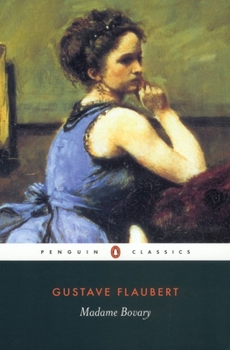Madame Bovary: Provincial Lives
Select Format
Select Condition 
Book Overview
The notorious and celebrated novel that established modern realism For this novel of French bourgeois life in all its inglorious banality, Flaubert invented a paradoxically original and wholly modern style. His heroine, Emma Bovary, a bored provincial housewife, abandons her husband to pursue the libertine Rodolphe in a desperate love affair. A succ s de scandale in its day, Madame Bovary remains a powerful and scintillating novel...
Customer Reviews
Disliked This Heroine
novel of life
"Like God in His Universe . . ."
A true classic!
The Apogee of the French Novel . . . At Least Until Proust
For my money, the preferred translation of Flaubert's novel
Madame Bovary : Mœurs de province Mentions in Our Blog

This week we celebrate the birthday of acclaimed American-Canadian author John Irving, born on March 3, 1942. With a career that has spanned five decades, his work is marked by a tension between tradition and nonconformity, reverence and rebellion. Here we highlight five of his essential titles, as well as their screen adaptations.







